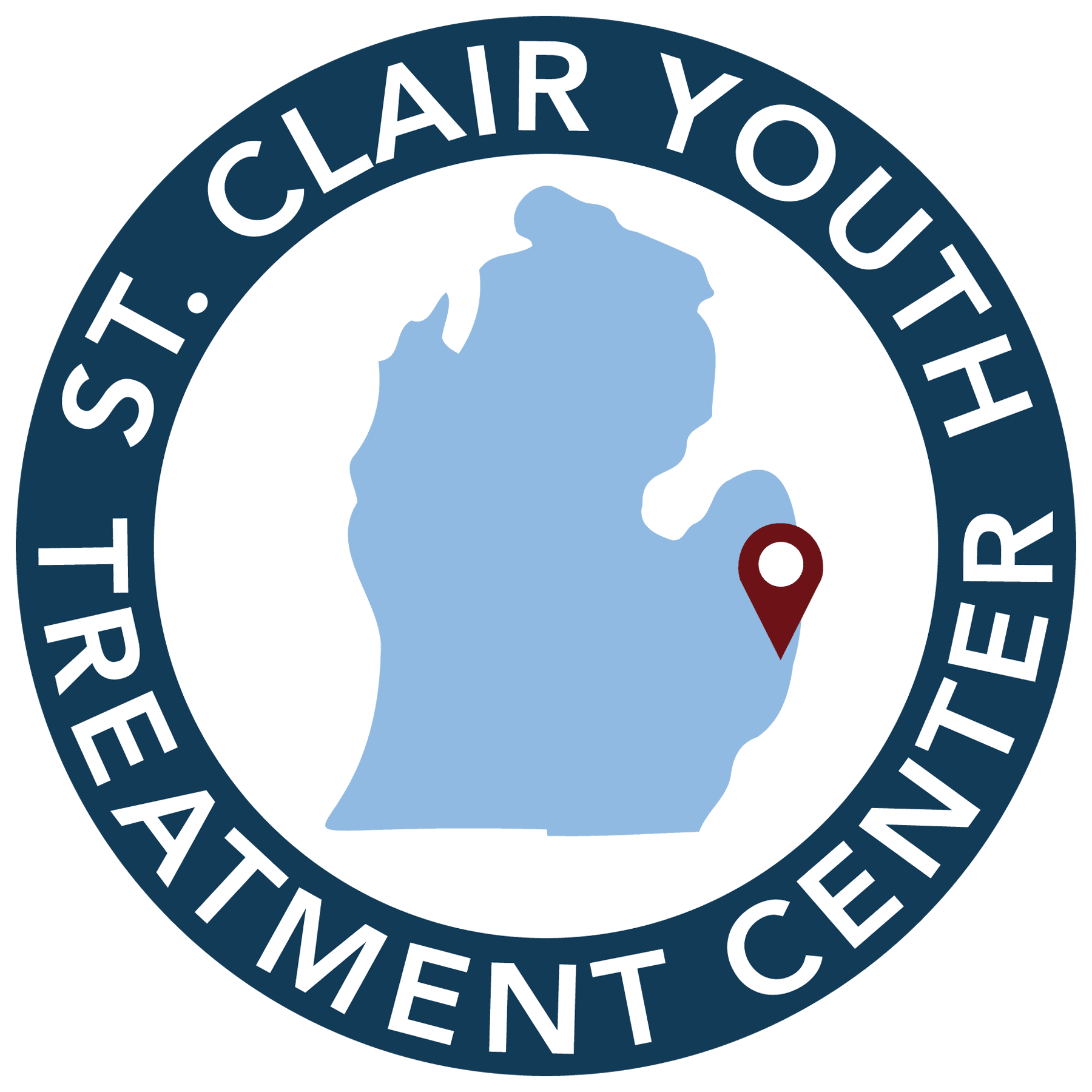Our Services
Evidence Based Treatment Curricula
St. Clair offers a variety therapeutic groups for youth, which provide them the appropriate dosage of cognitive-based interventions to reduce risk factors:
Seeking Safety for Adolescents. A present-focused, coping skills therapy to help adolescents to attain safety from trauma and/or substance abuse.
Thinking for a Change (T4C). An integrated cognitive behavioral change program developed by the National Institute of Corrections (NIC) that includes social skills, cognitive self-change, and problem-solving skills.
Aggression Replacement Training (ART). Social emotional learning in empathy, anger management, social skills, and character education shown to improve academic and behavioral success.
UCCI Cognitive Behavioral Interventions for Substance Abuse. Skill-building activities assist with cognitive, social, emotional, and coping skill development.
Motivational Interviewing (MI). MI techniques enhance intrinsic motivation for change through guided problem-solving skills in one-on-one interactions with staff.


Education
St. Clair Youth Treatment Center is committed to student learning, and a quality education program places students at the center of the process. Our goal is to provide year-round, accredited, quality education and academic support for youth to successfully gain academic skills, accumulate credits, and gain independence and self-reliance. Education provided through a blended learning model that builds upon each student’s strengths while encouraging them to succeed. Special education compliant with all Michigan Department of Education and Federal Standards is also provided.
Family Services
St. Clair encourages families to fully participate in every aspect of their son’s treatment, education, programming, and discharge to include:
- • Information about the program prior to their child’s placement
- • Active participation in the Multidisciplinary Team
- • Participation in development of a Regulation and Soothing Plan
- • Case Manager as a point-of-contact to maintain communication
- • Family visitation (including siblings) and daily contact (when safe/therapeutically indicated) via phone calls
- • Family therapy at least once per month (as therapeutically indicated)
- • Scheduled open houses
- • Quarterly Parent-teacher conferences (in conjunction with the school)
- • Invitations to attend facility events (such as guest speakers, graduation ceremonies, etc.)
Family therapy promotes attachment, positive behavior, conflict resolution/reduction and development of strategies for reconciliation and reunification. At minimum, family therapy will be provided monthly, available during the weekends and on scheduled weekdays via teletherapy.


Health, Wellness and Recreation
St. Clair Youth Treatment Center’s youth learn how to use their time positively and productively through participation in many different activities including intramural sports, art, music, board games, etc. Many of these activities will take place at St. Clair Youth Treatment Center and when appropriate in the community. These include:
- • Participation in at least one hour of large muscle exercise with participation structured with consideration for any individual limitations.
- • Recreation and leisure time activities in the daily schedule to teach positive use of leisure time as an important life skill.
Community Service
Community service and service-learning activities are part of the Restorative Justice model adopted by St. Clair Youth Treatment Center. Using this approach, we work with youth to rebuild their relationships with their community by positively connecting them to resources and providing community service opportunities.


Discharge Planning
St. Clair will provide 6 months of post-discharge aftercare, prescribed to youth based on service level needs, in a process that begins at admission.
- • At least 180 days prior to discharge, St. Clair will make a referral to Community Mental Health for assessment and case management/wraparound services and continue coordination with CMH until release.
- • The Multi-disciplinary team will then solidify a Discharge Plan to include the services to be provided.


